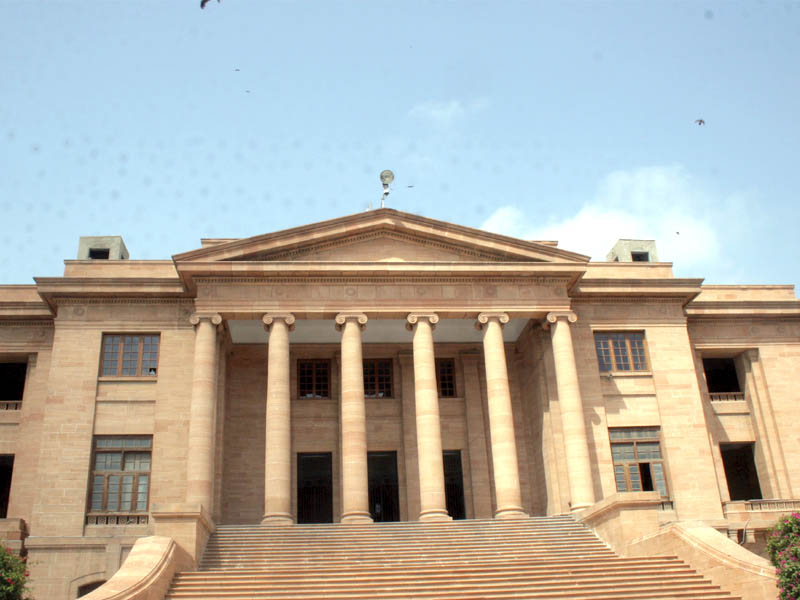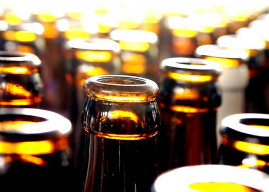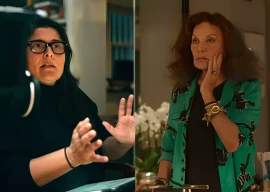
KARACHI: The Sindh High Court (SHC) directed on Friday the excise and taxation department's director-general (DG) to explain the terms and conditions set for the issuance of licences to run liquor shops in the province, as some are allegedly being illegally operated in Muslim-majority localities of Karachi.
SHC Chief Justice Sajjad Ali Shah, who headed a two-judge bench hearing the case, also directed the Election Commission of Pakistan to submit statistics on the population of non-Muslims who are legally allowed to consume and sell liquor.
The bench was hearing a petition against the reported shifting of a liquor shop from Karachi's Korangi area to North Karachi.
Muhammad Zafar Mavia, a resident of North Karachi, had approached the court against the shifting of the liquor shop, naming the provincial home secretary, the excise and taxation DG and Lucky Traders as respondents.

The petitioner informed the judges that Lucky Traders had been granted a licence by the excise and taxation department to open a liquor shop in Korangi No 2 ½. However, he came to know that the owner was shifting the shop to North Karachi's sector H, which he claimed is a Muslim majority area. Mavia apprehended that the open sale of liquor will cause 'problems' for the residents, as members of religious minorities do not live there.
A day earlier, the provincial law officer had informed the court that the excise and taxation department had issued licences to 75 liquor shops in the city. The bench had then directed the excise and taxation DG to submit details of all the liquor shops being run across the province. That report is yet to be submitted.
Conducting a follow-up hearing on Friday, the two-judges directed the department head to explain what were the terms and conditions and criteria that had been set in the law for the issuance of licences to run 'wine shops'.
The officer will also submit maps of the localities with liquor stores, explaining how many mosques, schools and Muslim residents live in their proximity.
Regarding the sale of liquor in Muslim-majority localities, the bench also directed the election authorities to submit a report containing details regarding population of religious minorities dwelling in the city's upscale Defence and Clifton neighbourhoods.
The excise and taxation department and election authorities will submit these details by October 18.
Similar case
Hearing another case on September 28, the SHC had ordered to seal a wine shop operating in a Muslim-majority locality of Thatta.
The bench was hearing a petition filed by Thatta resident Irfan Bikak who had approached the court against the excise and taxation department and Thatta police for allegedly failing to close a wine shop in a Muslim-majority locality.
The petitioner had stated that the Royal Wine Shop, allegedly owned by the excise minister, was operating in a locality where majority residents are not non-Muslims, as provided in the laws governing the business. He maintained that there are many mosques and schools in the area, thus open sale of liquor should be barred there.
When Thatta SHO Inspector Abdul Jabbar filed a detailed report stating that several schools and mosques are situated close to the Royal Wine Shop, the bench took the SHO's report on record. The lawyer for the wine shop requested for time to go through it which was accepted, but for the meantime, the bench, also headed by the chief justice, ordered, "In the circumstances, let the wine shop be sealed forthwith."
Published in The Express Tribune, October 15th, 2016.























1713425884-0/Tribune-Collage-Feature-Images-(10)1713425884-0-270x192.webp)


















COMMENTS
Comments are moderated and generally will be posted if they are on-topic and not abusive.
For more information, please see our Comments FAQ